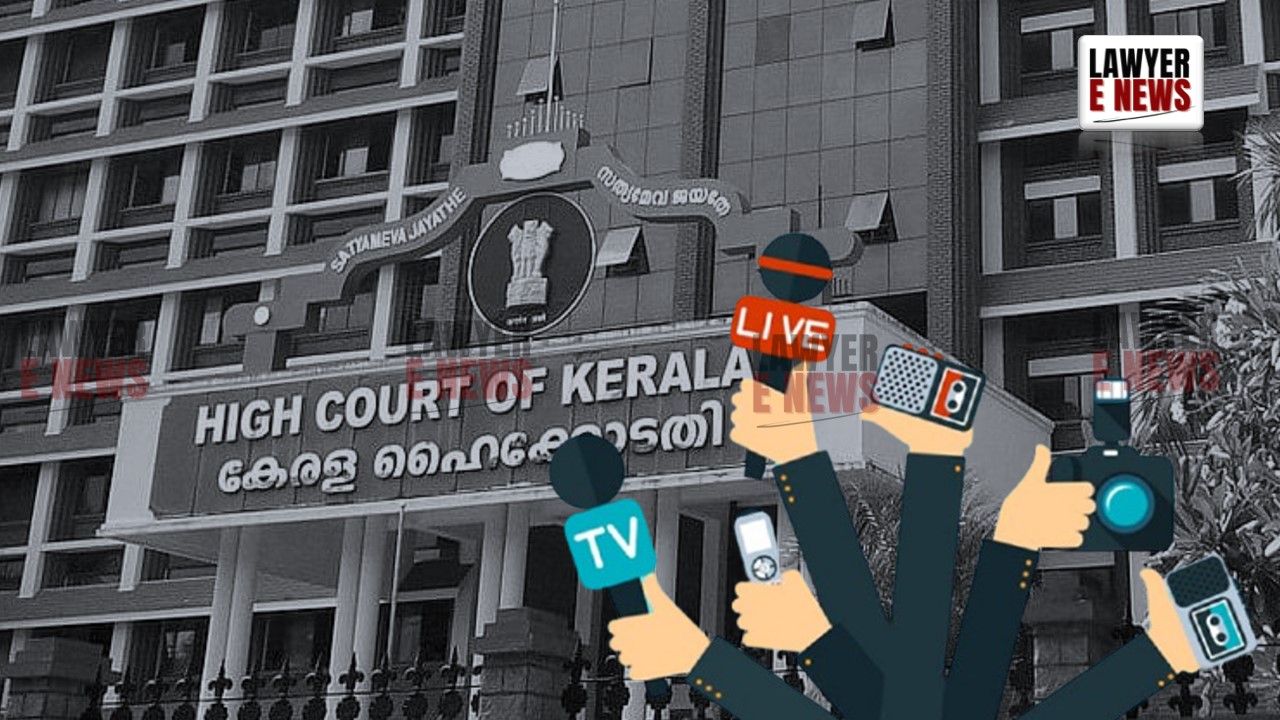-
by Admin
15 February 2026 2:36 AM



A five-judge bench of the Kerala High Court delivered a landmark judgment in Dejo Kappan vs. State of Kerala, addressing the media’s freedom to report on ongoing criminal investigations and pending judicial proceedings. The bench, led by Justice A.K. Jayasankaran Nambiar, scrutinized the extent and content of freedom of speech and expression under Article 19(1)(a) of the Constitution, especially as it pertains to media reporting in such cases.
The case originated from multiple writ petitions questioning the scope of media freedom in reporting criminal matters still under investigation and the proceedings in sub judice cases. Concerns were raised about the potential harm that inaccurate or premature reporting could cause to the accused, complainants, and even the judiciary's credibility. The petitions emphasized that reporting should respect an individual’s right to dignity, as guaranteed under Article 21 of the Constitution.
The Full Bench had previously referred the matter to a larger bench, citing significant legal questions that warranted a broader interpretation, given the media’s evolving role and the societal impact of its reporting.
Sufficiency of Existing Regulations: The court considered whether existing laws like the Press Council Act, 1978, and regulations under the Cable Television Networks (Regulation) Act, 1995, sufficiently regulate media behavior, especially in reporting pending criminal cases.
Applicability of Article 19(1)(a) to Corporations: The court examined if freedom of speech under Article 19(1)(a) extends to media organizations as entities, not just individual citizens.
Duty to Publish Truthfully: A significant point raised was whether the press and media must publish accurate and contextually complete information, particularly concerning legal proceedings.
Media’s Role in Open Courts: Observing that open courts ensure transparency and trust, the court deliberated on the boundaries of media reporting without compromising the right to a fair trial or creating public prejudice.
The court explored the scope of free speech in relation to the right to a fair trial and the potential for media to influence public perception, potentially damaging the integrity of ongoing proceedings. It drew from precedents, including Sahara India Real Estate Corp. Ltd. vs. SEBI (2012) and Kaushal Kishor vs. State of Uttar Pradesh (2023), to highlight that reasonable restrictions on free speech can be imposed, but only through statutory means or in accordance with Article 19(2).
The judgment emphasized that while the media plays a critical role in informing the public, it is not an adjudicative body and must avoid suggesting outcomes or passing judgment in cases under trial. Reporting must not “infringe on the rights of an accused for a fair trial,” particularly in criminal cases where public opinion might influence judicial outcomes.
The bench observed, “When the media presents information that distorts the truth or omits necessary context, it risks undermining public trust in judicial decisions, especially if the outcome contradicts popular sentiment created by media coverage.” Consequently, the court underscored the media's responsibility to accurately report proceedings and maintain neutrality to safeguard the integrity of judicial processes.
Rather than imposing new restrictions, the court issued a declaration outlining the media's permissible scope under Article 19(1)(a). This guide aims to prevent overreach by media entities while allowing affected parties to seek recourse if specific instances breach this framework. The court noted that it would review cases individually to determine if a violation of these limits warranted intervention.
In this landmark declaration, the Kerala High Court effectively set a precedent for managing the delicate balance between media freedom and judicial integrity, underscoring the media's duty to refrain from prejudicial reporting on criminal matters and pending cases.
Date of Decision: November 7, 2024
